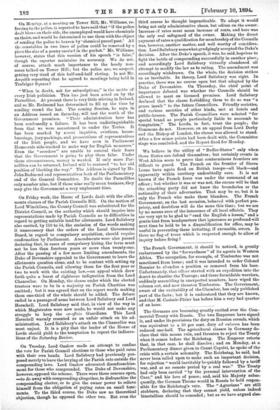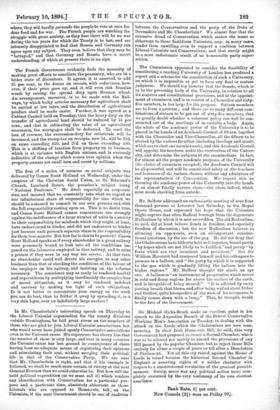The Germans are becoming greatly excited over the Com- mercial
Treaty with Russia. The two Emperors have signed, it, and under its provisions the duty on Russian cereals, which was equivalent to a 50 per cent, duty ad valorem has been reduced one-half. The agricultural classes in Germany de- clare that this means ruin, and threaten to reject the Treaty when it comes before the Reichstag. The Emperor retorta that, in that case, he shall dissolve ; and on Monday, at a Parliamentary dinner given to Count Caprivi, he spoke of the crisis with a certain solemnity. The Reichstag, he said, had never been called upon to make such an important decision, for rejection "would inevitably be quickly followed by a tariff war, and at no remote period by a real war." The Treaty had only been carried "by the personal intervention of the Czar," and his love of peace; and, said his Majesty subse- quently, the German Throne would in Russia be held respon- sible for the Reichstag's vote. The "Agrarians" are still stubborn, declaring that they cannot yield, unless indeed bimetallism should be conceded ; but as we have argued else.
where, they will hardly persuade the people to vote at once for dear food and for war. The French people are watching the struggle with great anxiety, as they fear there will be no war 'during the ten years for which the Treaty is to last, and are intensely disappointed to find that Russia and Germany can -agree upon any subject. They even believe that they may be "betrayed," and that Germany and Russia have a secret -understanding, of which at present there is no sign.







































 Previous page
Previous page